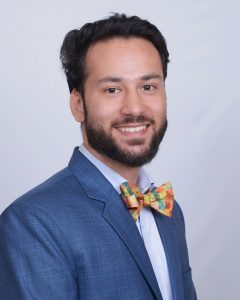 Mashood Ahmad Farooqi
Mashood Ahmad Farooqi is interested in the role of social and environmental determinants on physical and mental health clinical outcomes. As a trained physician, he is also interested in how medical students are trained in understanding the role of social and environmental determinants on clinical outcomes. In the Food Lab, Mashood is working with a team to explore the impact of structural determinants on mental health disorders and substance abuse. Prior to joining the UB Food Lab as a research fellow, Mashood completed his Bachelors in Medicine and Bachelors in Surgery (MBBS) from Government Medical College, Srinagar, Jammu and Kashmir.
Mashood is an avid football fan. In his spare time, Mashood enjoys reading fantasy and history, and spending time in the gym and in the wilderness.
Touseef Yousuf Mir is an ethnographic researcher, teacher, and public engagement & advocacy professional. He currently serves as faculty at the Centre for Development Studies, Department of Social and Policy Sciences (SPS), University of Bath, United Kingdom. His work takes a principally multidisciplinary approach sitting at the intersection of conflict studies, comparative politics, and everyday state and society. Using the ethnographic (qualitative) methodology, his work upends the gaze to the popular experience side of the state-society debate within conflict studies. His work particularly looks at the protracted conflict situation of Kashmir.
A doctoral student in urban and regional planning, Kahad Adamu is interested in the political ecology of gold mining in Sub-Saharan Africa and managing natural resources (land and water), land management and administration, and affordable housing.
At the Food Lab, Kahad works on a variety of analytical projects. He is currently investigating the racial disparities in the spatial distribution of retail food destinations in Erie County. He is also involved in the Healthy Corner Store Initiative (HCSI) project.
Before joining UB, Kahad earned an MSc in Urban Development Planning from University College London (UCL) and a BSc (Hons) in Land Economy from KNUST in Ghana. Kahad previously worked as an adjunct lecturer at Kumasi Technical University in Kumasi, Ghana, where he taught courses such as Land Use Planning and Administration and Property Rating and Taxation. He also worked with the Land Resources and Management Center (LRMC) on projects that examined urban governance and informal settlement in Ghana’s capital city.
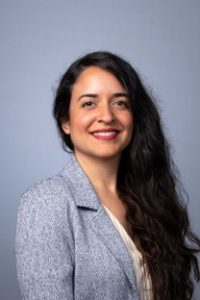
Carol E. Ramos Gerena is interested in agroecology, land use planning, critical food policy literacy, and food sovereignty. She has worked in governmental and non-governmental organizations that support community development projects in Puerto Rico (PR). For about a decade, she has promoted agroecological farming and collaborated on the environmental restoration of abandoned buildings and lands near public housing and public school sites in PR. At the UB Food Lab, Carol coordinates a bi-city action-research initiative to promote urban agriculture policy designed by and for people of color in the cities of Buffalo and Minneapolis.
Carol is currently pursuing a doctorate in urban and regional planning at the University at Buffalo. She is an Arthur A. Schomburg Fellow and a Health Policy Research Scholar (HPRS) supported by the Robert Wood Johnson Foundation (RWJF). Prior to joining UB, Carol completed her Bachelor’s Degree in Biology at the University of Puerto Rico in Mayagüez Campus and a Master’s degree in Environmental Planning at the University of Puerto Rico in Río Piedras. Her Master’s thesis focused on sustainable planning of agroecological initiatives in K-12 public schools in Puerto Rico.
In her spare time, Carol enjoys playing with her pets, talking with her family, painting, biking, reading, urban farming, watching movies, and hearing/playing Afrolatinoamerican music.
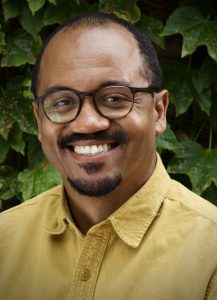 Dr. Cameron Herman is an Assistant Professor in the Department of Sociology and an affiliate faculty member in Africana Studies at Buffalo State College. His teaching and research broadly focuses on understanding the ways marginalized groups experience and navigate social inequalities in urban environments. Cameron has published solo and collaborative journal articles, chapters in edited volumes and online publications on a range of topics including Black artists’ response to gentrification, housing activism and neoliberal governance, Black masculinity in hip hop. In the wake of COVID-19’s onset, Cameron’s research agenda has expanded through collaborations with community partners and equity-minded scholars in the UB Food Systems and Healthy Communities lab to support community-based responses to inequitable food systems in Buffalo, NY. In his free time, Cameron enjoys spending time with his wife and daughter, exploring neighborhoods on his bicycle and photographing everyday life.
Dr. Cameron Herman is an Assistant Professor in the Department of Sociology and an affiliate faculty member in Africana Studies at Buffalo State College. His teaching and research broadly focuses on understanding the ways marginalized groups experience and navigate social inequalities in urban environments. Cameron has published solo and collaborative journal articles, chapters in edited volumes and online publications on a range of topics including Black artists’ response to gentrification, housing activism and neoliberal governance, Black masculinity in hip hop. In the wake of COVID-19’s onset, Cameron’s research agenda has expanded through collaborations with community partners and equity-minded scholars in the UB Food Systems and Healthy Communities lab to support community-based responses to inequitable food systems in Buffalo, NY. In his free time, Cameron enjoys spending time with his wife and daughter, exploring neighborhoods on his bicycle and photographing everyday life.
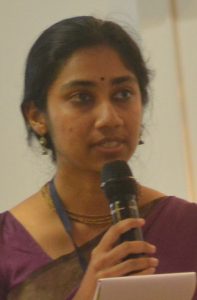 Radhika P Kumar is a full-time faculty member at the College of Architecture Trivandrum (C.A.T). She holds a Bachelor’s degree in architecture from Bangalore University, and a Master’s degree in Planning (Housing) from the University of Kerala (College of Engineering, Trivandrum).
Radhika P Kumar is a full-time faculty member at the College of Architecture Trivandrum (C.A.T). She holds a Bachelor’s degree in architecture from Bangalore University, and a Master’s degree in Planning (Housing) from the University of Kerala (College of Engineering, Trivandrum).
Her research interests include the role of planning in building ‘Healthy’ cities, social rental housing as a means to achieve “Housing for All”, and urban microclimate studies as a guide to urban form development. Her present academic position also allows her to indulge her other interests like instructional design for active learning, as well as architecture and planning pedagogy.
While pursuing her master’s program, she had the opportunity to participate in a multidisciplinary, international-collaboration studio project headed by Dr. Samina Raja, in Maradu, Kerala; and is now associated with the Food Lab as a Remote Research Affiliate for its activities in Kerala. In this capacity, she has recently participated in the Food Lab’s Plan-REFUGE program, seeking to understand the issues faced by smallholder farmers in predominantly agrarian countries like India.
Apart from her academic contribution to the sustainability cause, Radhika also actively volunteers in programs that impart ethical and spiritual values, especially among children and youth, since she strongly believes that inner transformation and understanding individual social responsibility, can go a long way in achieving a truly sustainable future.
 Mashood Ahmad Farooqi is interested in the role of social and environmental determinants on physical and mental health clinical outcomes. As a trained physician, he is also interested in how medical students are trained in understanding the role of social and environmental determinants on clinical outcomes. In the Food Lab, Mashood is working with a team to explore the impact of structural determinants on mental health disorders and substance abuse. Prior to joining the UB Food Lab as a research fellow, Mashood completed his Bachelors in Medicine and Bachelors in Surgery (MBBS) from Government Medical College, Srinagar, Jammu and Kashmir.
Mashood Ahmad Farooqi is interested in the role of social and environmental determinants on physical and mental health clinical outcomes. As a trained physician, he is also interested in how medical students are trained in understanding the role of social and environmental determinants on clinical outcomes. In the Food Lab, Mashood is working with a team to explore the impact of structural determinants on mental health disorders and substance abuse. Prior to joining the UB Food Lab as a research fellow, Mashood completed his Bachelors in Medicine and Bachelors in Surgery (MBBS) from Government Medical College, Srinagar, Jammu and Kashmir.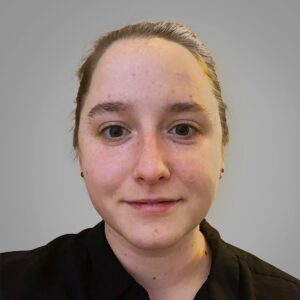
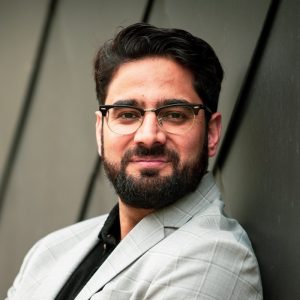

 Zane Longwell is a current Master of Urban Planning student at the University at Buffalo investigating how the City of Buffalo can support locally-owned food retail. He is interested in food systems equity, urban agriculture, climate justice, and affordable housing. He was recognized for his advocacy work as the Faculty Liaison with the Graduate Planning Student Association by receiving a Master of Urban Planning Service Award and was also nominated for a Pillars of Leadership Student Organization Officer of the Year award. In 2022, he completed his Bachelor’s Degree in Architectural Studies at Kent State University. Outside of school, Zane enjoys watching reality TV, reading, going to coffee shops, and hiking.
Zane Longwell is a current Master of Urban Planning student at the University at Buffalo investigating how the City of Buffalo can support locally-owned food retail. He is interested in food systems equity, urban agriculture, climate justice, and affordable housing. He was recognized for his advocacy work as the Faculty Liaison with the Graduate Planning Student Association by receiving a Master of Urban Planning Service Award and was also nominated for a Pillars of Leadership Student Organization Officer of the Year award. In 2022, he completed his Bachelor’s Degree in Architectural Studies at Kent State University. Outside of school, Zane enjoys watching reality TV, reading, going to coffee shops, and hiking.


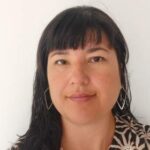






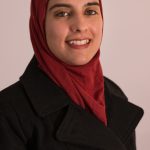




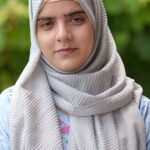

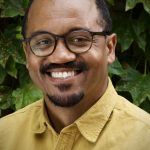



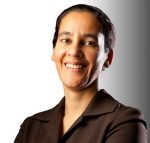

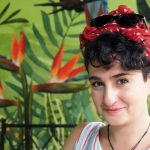
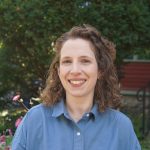
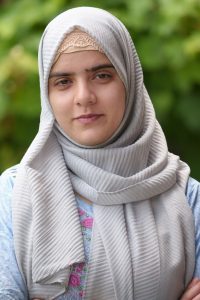 Insha Akram is interested in understanding the experiences of women smallholder farmers living in the conflict setting of Kashmir valley in the Himalayan region within their communities’ food systems and creating equitable spaces for women. Her research interests include gender discrimination, women’s equity within traditional markets, and food sovereignty in occupied regions. In the Lab, Insha’s work focuses on smallholder farmers growing indigenous collard greens in Srinagar city of Jammu and Kashmir and coordinates all of the lab’s team. Insha is currently pursuing a Master’s in Urban and Regional Planning with a specialization in Community Health and Food Systems.
Insha Akram is interested in understanding the experiences of women smallholder farmers living in the conflict setting of Kashmir valley in the Himalayan region within their communities’ food systems and creating equitable spaces for women. Her research interests include gender discrimination, women’s equity within traditional markets, and food sovereignty in occupied regions. In the Lab, Insha’s work focuses on smallholder farmers growing indigenous collard greens in Srinagar city of Jammu and Kashmir and coordinates all of the lab’s team. Insha is currently pursuing a Master’s in Urban and Regional Planning with a specialization in Community Health and Food Systems.

 Radhika P Kumar is a full-time faculty member at the College of Architecture Trivandrum (C.A.T). She holds a Bachelor’s degree in architecture from Bangalore University, and a Master’s degree in Planning (Housing) from the University of Kerala (College of Engineering, Trivandrum).
Radhika P Kumar is a full-time faculty member at the College of Architecture Trivandrum (C.A.T). She holds a Bachelor’s degree in architecture from Bangalore University, and a Master’s degree in Planning (Housing) from the University of Kerala (College of Engineering, Trivandrum).